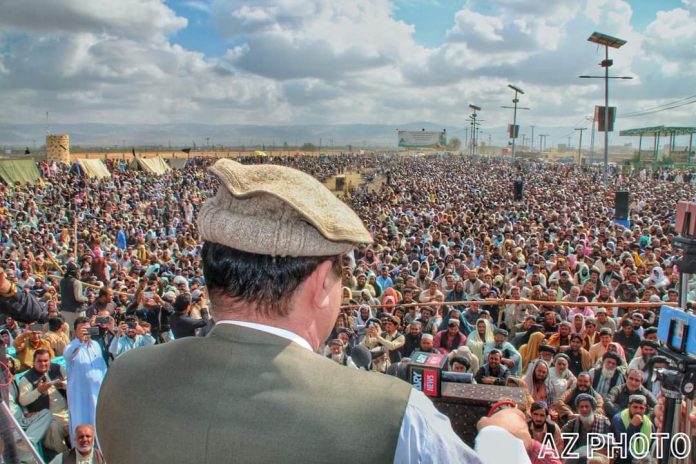The Chaman protest against the recent imposition of passport and visa conditions at the Chaman-Spin-Boldak crossing point has marked its nineteenth day, with participants steadfast in their opposition to the new regulations. Organized by the All Pakistan Tradesmen and Laghri Alliance, representing those engaged in trade at the crossing point, the demonstration has been a response to the Pakistan government’s decision, effective since the beginning of November, to mandate visas and passports for traders crossing the border.
Despite the significant impact on approximately 35,000 people, including political workers, traders, and tribesmen, the media coverage of their demands has been notably limited. The protestors’ primary demand is the restoration of the previous eligibility criteria, which only required national identity cards along with an issuance of slip called Tazikra, for crossing the Pak-Afghan border.
30,000 to be affected on Chaman border
For years, traders and locals have routinely crossed the border to conduct business, typically returning home at the end of the day. Chaman city alone witnesses an estimated 30,000 people crossing the Chaman-Spin-Boldak point daily, engaging in commerce at the Vish Mandi in Spin Boldak, Afghanistan, and returning to Chaman by nightfall.
Negotiations have been attempted between the protestors, local administration, and governing bodies in various rounds, but as of now, no conclusive agreement has been reached despite numerous discussions. The protestors remain resolute in their stance, emphasizing the economic repercussions and logistical challenges posed by the newly imposed passport and visa requirements.
As the Chaman protest enters its third week, concerns are growing over the potential economic fallout for the region. Accordingly, daily wage earners dependent on cross-border trade are experiencing disruptions, heightening the urgency for a resolution to be reached. The impact of this ongoing demonstration extends beyond the immediate participants, affecting the livelihoods of a substantial portion of the local population.
The All Pakistan Tradesmen and Laghri Alliance is urging the government to reconsider its decision, emphasizing the historical ease of trade and movement across the border. The protestors argue that reverting to the previous criteria, which allowed trading with only national identity cards, would not only ease the burden on the local populace but also foster continued economic activity in the region.

